An easy one: what links Jack Straw’s Castle, The Labouring Boys and The Jolly Taxpayer? No, not the parliamentary expenses scandal of yesteryear, but the weird and whimsical world of British pub names.
It was in 1393 that Richard II ordered brewers to announce their beery business by a prominent sign. Colourful names quickly abounded, invented by publicans and patrons alike. The intervening six centuries have given ample scope for praise and play.
The commonest names across the UK’s 50,000 or so pubs gesture to royal heraldry: The Red Lion, Crown, Royal Oak and White Hart make up the top four; Rose and Crown, Queen’s Head and King’s Arms come close behind. Most monarchs win a mention somewhere, although King Edward VIII is remembered only in The Abdication (Arnold, Notts).
Military conquests find widespread coverage, most provocatively by the Turk’s, Saracen’s or Black(a)moor’s Head. Ye Olde Trip to Jerusalem (Nottingham) claims to have been the rallying point for the Third Crusade. But many an eponymous general, admiral or battle now falls flat with the average pubgoer. Do drinkers in The Antigallican (Charlton) still seethe with suspicion?
Traditional trades and livery companies are commemorated everywhere, with The Three Horseshoes (farriers), Masons Arms and Carpenters Arms leading the field. Mayfair’s I Am The Only Running Footman preserves that livelihood’s last dash. While hunting, sporting, agricultural and locomotion are ubiquitous themes, literary names are scarcer. The Rubaiyat in Glasgow closed years ago, but they’re still serving at The Dr Syntax Inn (Stocksfield), The Case Is Altered (Bentley, Suffolk), The Barnaby Rudge (Tebay) and The Hobbit (Southampton).
As a rule, pub names should never change — but the occasional tweak is forgiveable. Northfield’s Man In the Moon became, in 1969, the Man On The Moon; and the Bird In The Hand (Witney) became the Baby in the Hand after an emergency delivery in the car park. The oldest pub, with at least 11 centuries behind it, is the unassuming Bingley Arms in Bardsey. The highest (Tan Hill Inn, Yorkshire Dales) rises to 1,732 feet; the lowest (Admiral Wells, Peterborough) sits nine feet below sea level. The remotest (The Old Forge, Knoydart) demands an 18-mile hike or seven–mile ferry to reach a road to it.
The Kentish pubs that are the country’s largest (Royal Victoria Pavilion, Ramsgate) and smallest (The Little Prince, Margate) give some advance warning of scale. And the longest pub name — The Old Thirteenth Cheshire Astley Volunteer Rifleman Corps Inn (Stalybridge) — is amusingly precise.
Here is just a taste of the riotous gallimaufry of pub names. What to make of The Drunken Duck (Ambleside), The Bucket of Blood (Phillack, Cornwall), The World Turned Upside Down (Reading), The Cardinal’s Error (Tonbridge), The Honest Politician (Portsmouth) or My Father’s Moustache (Louth)? Each has a story, so sidle up to the bar and ask. But hurry: The Mother Huff Cap (Alcester), The Cow and Snuffers (Cardiff), The Sociable Plover (Portsmouth) and Who’d a Thowt It? (Middleton, Manchester) join 36,000 others that have now called time (www.closedpubs.co.uk).
Got something to add? Join the discussion and comment below.
Get 10 issues for just $10
Subscribe to The Spectator Australia today for the next 10 magazine issues, plus full online access, for just $10.
You might disagree with half of it, but you’ll enjoy reading all of it. Try your first month for free, then just $2 a week for the remainder of your first year.

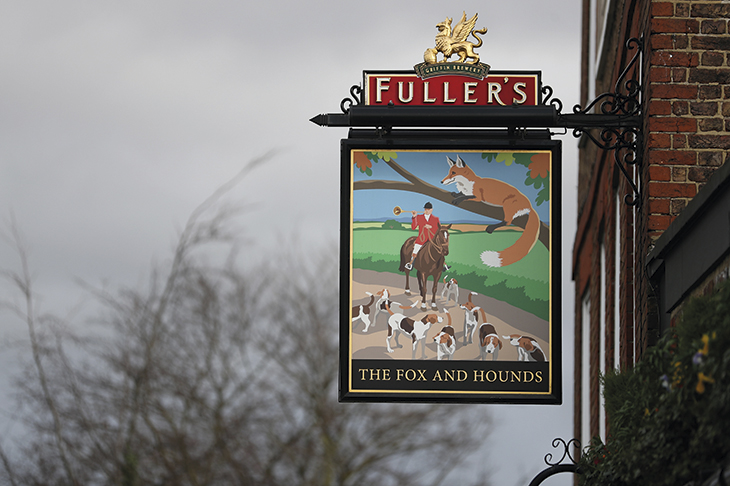
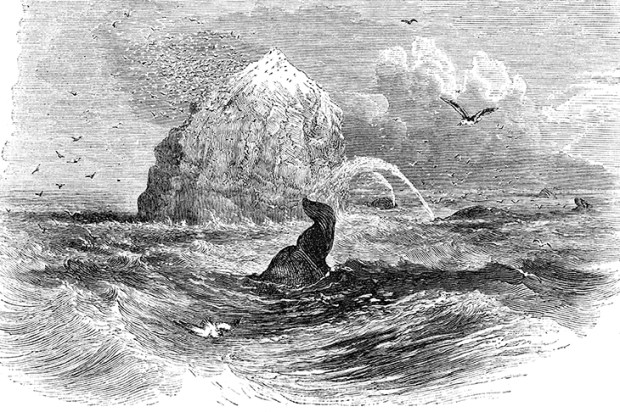
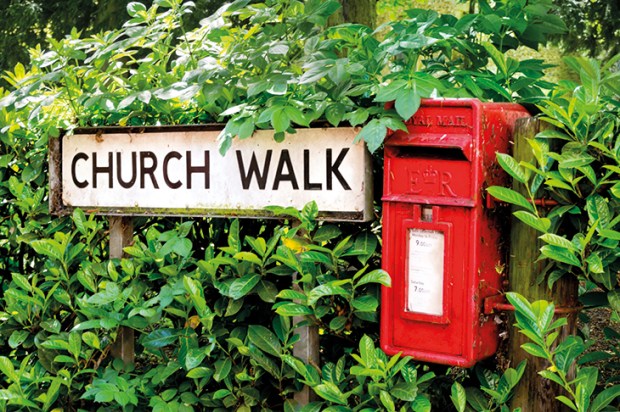
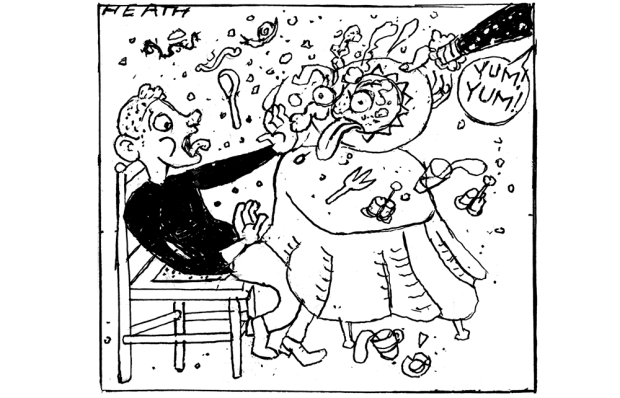
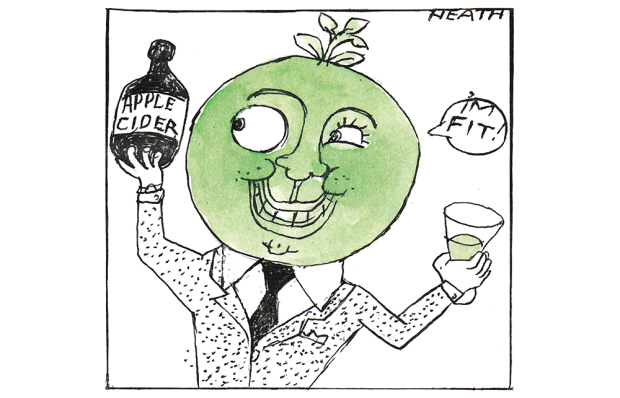
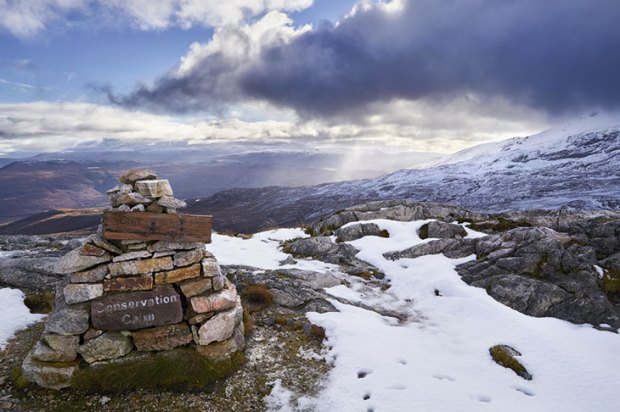
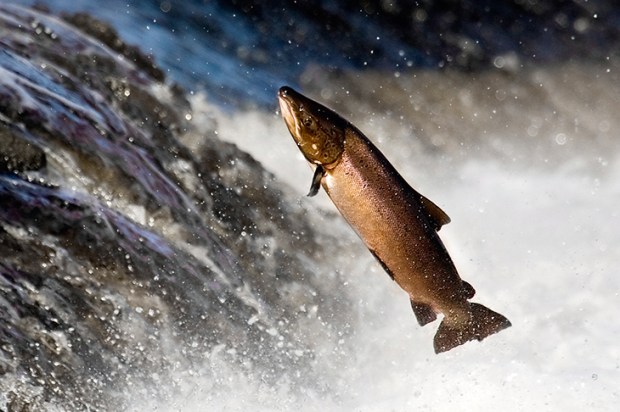






Comments
Don't miss out
Join the conversation with other Spectator Australia readers. Subscribe to leave a comment.
SUBSCRIBEAlready a subscriber? Log in